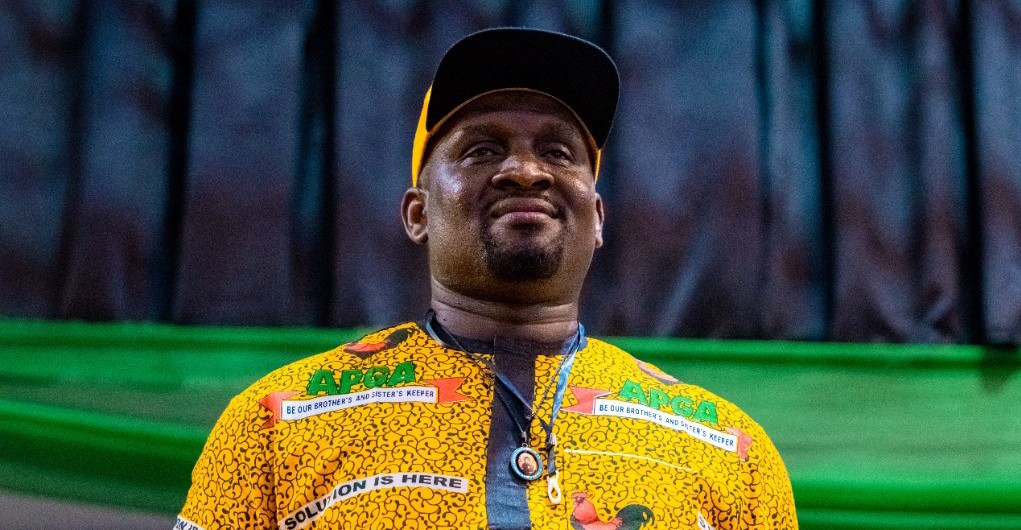THE DELIBERATIVE “RIGHT TO JUSTIFICATION” AND AGONISTIC DEMOCRACY:
A DIVIDED APGA – IMO STATE CHAPTER AS A CASE STUDY – BY MR NDUKA ANYANWU

Introduction: The political landscape of Imo State’s chapter of the AIl Progressives Grand Alliance (APGA) has been marked by divisions, injustices and conflicts. In order to address these challenges and prepare for future political tasks, the National Chairman of APGA has initiated a move towards reconciliation. This article explores the concept of political reconciliation, the importance of the right to justification, and the potential for agonistic democracy to foster reconciliation within the party.
Political Reconciliation and the Right to Justific ation: Achieving reconciliation in societies or political parties emerging from a history of injustice requires a political settlement that goes beyond symbolic gestures. Rather than merely apologizing or forgetting the past, political reconciliation involves confronting and recognizing differences and disagreements. To achieve this, the right to justification becomes crucial. This right implies that decisions affecting individuals should be accompanied by a duty to provide justifications for those decisions.
Agonistic Democracy and Political Reconciliation: In divided societies, reconciling former adversaries can be challenging. Deliberative democratic theory and agonistic democratic viewpoints offer different perspectives on how to overcome these challenges. Deliberative democratic theory emphasizes rational discourse, while agonistic democracy recognizes the need for competitive, confrontational political processes. By drawing on elements of both theories, it becomes possible to approach political reconciliation in complex contexts.
The Role of Individual Agency: The freedom to exercise individual agency is central to a workable political reconciliation model. Transforming power relations between dominant and oppressed groups into democratic relations is essential. This transformation can be achieved through discursive rights-based contestation, where individuals claim their rights and challenge oppressive power structures.
The Goal of Politic al Reconciliation: Reconciliation in post-conflict states, such as Imo State, faces various obstacles. However, adopting a right to justification can help facilitate reconciliation through deliberation and ongoing contestation. By challenging entrenched power relations, reconciliation can address the root causes of conflict and foster a justificatory power that challenges exclusionary practices.
Addressing historical divisions and promoting dialogue among party members in APGA lmo State requires a comprehensive approach aimed at fostering inclusivity, trust, and open communication. Here are some strategies that can be employed:
1. Truth and Reconciliation Commission: Establish a Truth and Reconciliation Commission (TRC) within the party to address historical grievances. The TRC can provide a platform for individuals to share their experiences, express their grievances, and seek redress. The commission should be impartial, independent, and transparent, with the goal ofpromoting healing and understanding among party members.
2. Mediation and Dialogue: Facilitate mediation sessions and structured dialogue among different factions within the party. These sessions should be designed to encourage open and respectful communication, allowing party members to express their perspectives, concerns, and aspirations. Skilled mediators can help facilitate constructive discussions and find common ground among the different groups.
3. Inclusive Decision-Making Processes: Ensure that decision-making processes within the party are inclusive and participatory. This can be achieved through mechanisms such as consensus-building, regular consultations, and the inclusion of diverse voices and perspectives. Allowing for meaningful input from all party members can foster a sense of ownership and reduce divisions.
4. Education and Awareness Programs: Implement educational programs to raise awareness about the party’s history, values, and goals. These programs can help foster a shared understanding among party members and promote empathy and respect for different viewpoints. Workshops, seminars, and training sessions on conflict resolution, communication skills, and inclusive leadership can also be beneficial.
5. Internal Party Reforms: Undertake internal party reforms to address historical divisions and power imbalances. This may involve reviewing and revising party structures, processes, and policies to ensure fairness, transparency, and equal representation. Encouraging the active participation of women, youth, and marginalized groups within the party can also contribute to a more inclusive and representative political environment.
6. Engaging External Stakeholders: Engage with external stakeholders such as civil society organizations, community leaders, and experts in conflict resolution and reconciliation. These stakeholders can provide valuable insights, expertise, and resOurces to Support the party’s efforts in addressing historical divisions and promoting dialogue.
7. Continuous Communication Channels: Establish continuous communication channels, such as online platforms, newsletters, and regular meetings, to keep party members informed and engaged. Transparent and consistent communication helps build trust and ensures that all members are kept up to date with party developments, decisions, and initiatives.
It is important to note that addressing historical divisions and promoting dialogue is an ongoing process that requires commitment, patience, and active participation from all party members. By implementing these strategies, APGA in Imo State can create an environment conducive to reconciliation, unity, and effective political engagement.
Conclusion:
The absence of a duty to justify the asserted identity of the party can hinder the process of political reconciliation. Reconciliation should be understood as a political ethos and practice that ensures the inclusion of historically marginalized groups in decision-making processes. Bridging the gap and forming a united front among the aggrieved party members can contribute to a formidable party that can wrestle power from Imo State and at the national level.
We particularly, call on all the 2018 IMO APGA GOVERNORSHIP ASPIRANTS: Okey Ezeh, Ike C. Ibe,
Bar Philip lbekwe, Bar Steve Nwoga, Mr Frank Nneji, Sen Bright Nwanne, Bar Charles Onyeagbako, Bar Uche Onyeaguocha, Dr Sam Amadi, Capt David Mbamara, Sir Daniel Kalu, Chief Chike Nsofor, Chief Chidi Okoro, Sir Stanley Amuchie and all the other aggrieved state and national assembly aspirants, need to bridge the gap and form formidable party to wrestle power in Imo State and at the national level.
Note: This article is written on behalf of Barrister Sly Ezeokenwa, the APGA National Chairman, with the aim of promoting political reconciliation within the APGA in Imo State.
Signed:
Mr. Nduka Anyanwu
SA- Media to the National Chairman APGA


